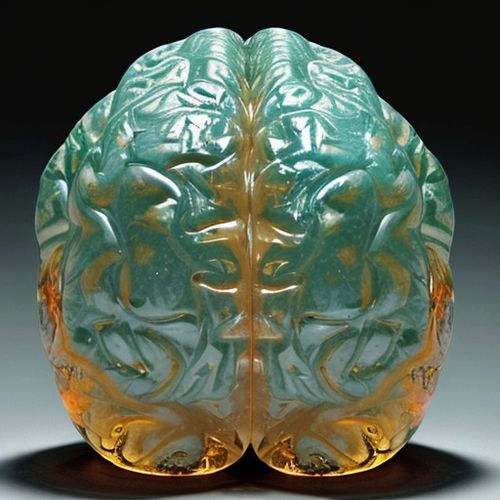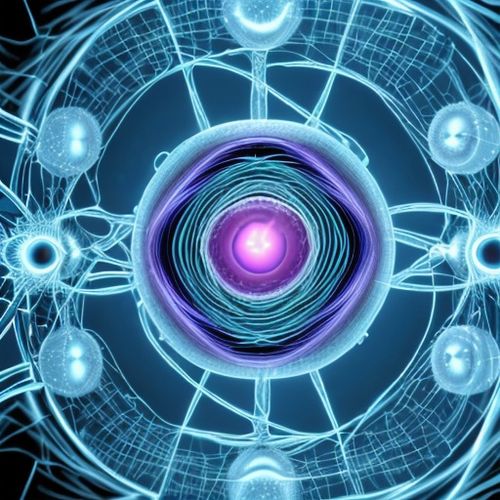In the modern era, the aspiration to delay human aging has captured the attention of the global scientific fraternity. With an aging population on the rise and the pursuit of enhanced quality of life, understanding the mechanisms of aging and devising strategies to slow it down have become paramount.
The quest to delay aging is not just a scientific endeavor but a societal one, as it holds the potential to improve the lives of millions of people around the world. In this article, we will delve into the molecular and cellular mechanisms of aging, the role of oxidative stress and antioxidants, metabolic regulation and dietary interventions, hormonal and neuroendocrine influences, and the impact of lifestyle modifications.
We will explore the latest research and developments in these areas, providing a comprehensive overview of the strategies being employed to delay human aging.
At the heart of aging lies a complex interplay of molecular and cellular events. Understanding these mechanisms is crucial for developing effective strategies to delay the aging process.
One of the key areas of research is the study of telomeres, the protective end-caps of chromosomes that shorten with each cell division. This shortening is associated with cellular senescence, where cells lose their replicative capacity and functionality.
Scientists have been exploring ways to either halt or reverse telomere attrition, with telomerase, an enzyme capable of elongating telomeres, showing potential. However, its activation needs to be carefully regulated, as uncontrolled telomerase activity can lead to cancer.
Another important area of research is the accumulation of damaged proteins and organelles within cells, which is a hallmark of aging. Autophagy, a cellular self-cleaning process, plays a crucial role in removing these damaged components.
Enhancing autophagy through genetic manipulation or pharmacological agents could potentially delay the aging process. Research in this area is ongoing, with scientists exploring various ways to boost autophagy and its impact on aging.
Oxidative stress, caused by an imbalance between the production of reactive oxygen species (ROS) and the body's antioxidant defenses, is a major contributor to aging.
ROS can damage DNA, proteins, and lipids, leading to cellular dysfunction and tissue degeneration. Antioxidants, both endogenous and exogenous, have been the focus of extensive research.
Endogenous antioxidants like superoxide dismutase (SOD) and glutathione peroxidase (GPx) work to neutralize ROS, while dietary antioxidants, such as vitamins C and E, polyphenols found in green tea and berries, and carotenoids in carrots and tomatoes, have been studied for their potential to scavenge ROS.
However, the efficacy of antioxidant supplementation remains a topic of debate, as excessive antioxidant intake in some cases may disrupt normal cellular signaling pathways.
Metabolism is intricately linked to aging, and caloric restriction has demonstrated the ability to extend lifespan in multiple organisms. By reducing calorie intake while ensuring adequate nutrient supply, organisms activate a series of stress-responsive pathways that enhance cellular resilience. Intermittent fasting, a variation of caloric restriction, has also shown promise, mimicking the fasting state and triggering autophagy and improving metabolic health.
The role of specific nutrients is also being investigated, with omega-3 fatty acids found in fish oil having anti-inflammatory properties and potentially mitigating age-related inflammation. Resveratrol, a compound in red wine, has been shown to activate certain longevity-related genes in some studies.
Hormones play a significant role in the aging process, with growth hormone (GH) and insulin-like growth factor 1 (IGF-1) levels declining with age and being associated with changes in body composition.
Strategies to modulate these hormonal levels, either through supplementation or lifestyle changes, are being explored. The hypothalamic-pituitary-adrenal (HPA) axis, which regulates the body's stress response, can become dysregulated in aging, leading to increased cortisol secretion and detrimental effects on various body systems.
Stress management techniques like yoga and deep breathing exercises can help regulate the HPA axis and potentially slow down aging.
Simple lifestyle changes can have a profound impact on delaying aging. Regular physical exercise not only improves cardiovascular health and muscle strength but also boosts brain function and reduces inflammation.
Adequate sleep is another crucial factor, as the body undergoes repair and restoration processes during sleep, and chronic sleep deprivation accelerates aging.
A diet rich in whole grains, lean proteins, and a variety of fruits and vegetables provides the necessary nutrients for optimal cellular function. Social engagement and mental stimulation, such as learning new skills or engaging in hobbies, can keep the mind active and delay cognitive decline.
Delaying human aging requires a multifaceted approach, with scientists continuously delving into the molecular, cellular, metabolic, hormonal, and lifestyle aspects to develop comprehensive strategies.
While there is still much to learn and refine, the cumulative efforts of research and the adoption of healthy lifestyle habits offer hope for a future where the effects of aging can be significantly mitigated. The quest to delay aging is not just a scientific endeavor but a societal one, holding the potential to improve the lives of millions of people around the world.

By Michael Brown/Mar 4, 2025

By Noah Bell/Mar 4, 2025

By Lily Simpson/Mar 4, 2025

By Emily Johnson/Mar 4, 2025

By Sarah Davis/Mar 4, 2025

By Amanda Phillips/Mar 4, 2025

By Eric Ward/Mar 4, 2025

By Jessica Lee/Mar 4, 2025

By Emily Johnson/Mar 4, 2025

By Victoria Gonzalez/Mar 4, 2025
.png)
By Ryan Martin/Dec 22, 2024

By Grace Cox/Dec 22, 2024

By Sarah Davis/Dec 22, 2024
.png)
By Sophia Lewis/Dec 22, 2024

By Megan Clark/Dec 22, 2024